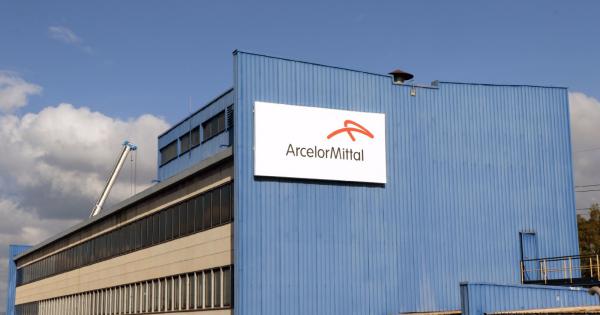Italian agency Invitalia has injected Eur400 million ($480 million) of new equity into ArcelorMittal subsidiary AM InvestCo Italy, bringing the renaming of the subsidiary and its main operating unit.
AM InvestCo Italy will be called Acciaierie d’Italia Holding, and its main operating subsidiary, ArcelorMittal Italia, will be Acciaierie d’Italia.
The largest European steel producer said April 14 that an investment agreement with Invitalia, Italy’s agency for investment promotion and enterprise development, has been completed, forming a public-private partnership between the parties.
The long-waited recapitalization will help start its planned investments toward greener production and secure its future path. ArcelorMittal agreed to the government equity payment in December, and it was originally expected to take place by Feb. 5.
As previously reported, Invitalia will make a second equity injection of up to Eur680 million to fund the completion of the purchase of the former Ilva’s business, which is expected by May 2022, with Invitalia’s share increasing to 60% and ArcelorMittal investing up to Eur70 million to retain a 40% share and joint control.
Payment delayed
Italy is under a “technical government” led by former European Central Bank President Mario Draghi. On Feb. 13, the Lecce regional administrative court said ArcelorMittal had to shut all hot-end operations within 60 days at its Taranto plant to curb emissions. ArcelorMittal appealed this decision to the Italian State Council, with a final hearing on the issue due May 13. All these issues led to a delay in the payment.
Because of the uncertainty surrounding the company, the new government was not willing to recapitalize the company, but then because of the importance of the sector decided to put the former Ilva’s future at the top of its agenda and decided not to wait for the May 13 hearing, sources said.
Following injection of the fresh capital announced April 14, Invitalia will have a 38% share and equal voting rights, with joint control over the company.
According to sources, Draghi asked Italian executive Franco Bernabè to be the president of the board over government quotas, in a clear sign that the future of the largest Italian mill is a priority. Bernabè is considered one of the top Italian managers and has led key Italian groups such as Eni and Telecom.
Second only to Germany
Italy is the second-largest European steel producer after Germany. Last year, according to Federacciai, the Italian steel association, the country produced around 20 million mt of crude steel. According to a government document, the Italian steel industry produces revenues of Eur60-70 billion a year. Italy has two large flat producers. One is ArcelorMittal Italia, with an installed crude steel capacity of 9 million-10 million mt a year, and the other is Arvedi, with about 5 million mt of crude steel capacity.
According to unions, at the moment ArcelorMittal Italia is working with only two blast furnaces: Nos. 1 and 2. No. 4 stopped recently because of refurbishment work. Each blast furnace has a design capacity of 1.8-1.9 million mt/year of crude steel, but they are not working at capacity. The former Ilva steel works has five blast furnaces at its Taranto site. Blast furnace No. 5, the largest in Europe with a production capacity of around 3.5 million mt/year, was idled in 2015. Blast furnace No. 3 has a capacity of about 2 million mt/year of crude steel but was idled in 1994 and is to be dismantled.
Highest prices ever
Italian and European steel prices are at their highest level ever because of increased demand and low supply. Buyers told S&P Global Platts on April 14 that it is difficult to find material, and most of the companies don’t even quote. Platts’ assessments show that, since the beginning of this year, South EU HRC prices have gone up by about Eur240/mt EXW Italy.
On April 14, the Italian Parliament’s upper house, the Senato, discussed and approved a motion for the Italian government to put forward a strategic plan for the steel industry, in a move that underlined the sector’s importance to the country.
The document, which won a majority of votes and has been seen by Platts, commits the government to support the launch of a common industrial policy for the steel sector in Europe and to sustain technological reconversion processes.
Among the key points was a request to consider the extension to the steel sector of the “golden power,” the right of the Italian state to intervene in a company that is considered strategic.
— Annalisa Villa





